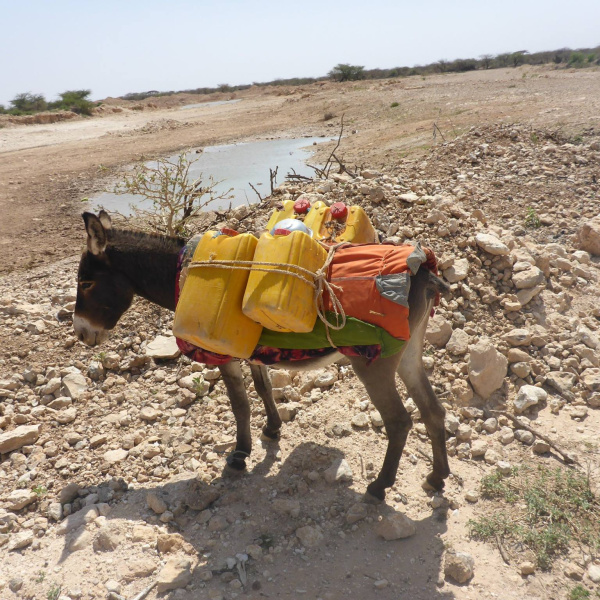The International Coalition for Working Equids (ICWE) is proud to celebrate its fifth anniversary of collaborative work to improve the health and welfare of working equids globally.
ICWE is comprised of four working animal NGOs: Brooke, The Donkey Sanctuary, SPANA and World Horse Welfare. All four charities work with rural communities around the world, supporting working equids and the people who depend on them for their livelihoods.
Globally, there are over 100 million working horses, donkeys and mules. They make a vital contribution towards the livelihoods of around 600 million people and are essential to the achievement of the United Nations Sustainable Development Goals (SDGs), such as no poverty, zero hunger, quality education and gender equality.
Over the last five years, the coalition has worked with the World Organisation for Animal Health (WOAH, founded as OIE) to support the implementation of the working equid standards, outlined in Chapter 7.12 of the Terrestrial Animal Health Code.
“Throughout its history, the World Organisation for Animal Health has repeatedly demonstrated how protecting animal health and welfare can help improve people's lives. Working equids are a telling example as they contribute directly and indirectly to households' livelihoods and benefit communities as a whole. We will continue to strive to bring positive and impactful change for people and animals, particularly in areas where today's global challenges put at risk these communities” says Dr Monique Eloit, Director General of the World Organisation for Animal Health.
Supporting WOAH national focal point seminars on animal welfare in Africa, the Americas, and Asia and the Pacific regions has enabled ICWE to give hands-on training to government officials on best equine welfare practices – from assessment tools to handling techniques – and also to raise awareness and recognition of working equine populations and their importance. The coalition has also presented at international forums such as the United Nations High-Level Political Forum on Sustainable Development, the Africa Regional Forum on Sustainable Development, the One Welfare Conference, and the EU Intergroup for Animal Welfare. Often hosting side events at these gatherings, ICWE’s attendance has ensured that working equids are included in conversations where they may have otherwise been overlooked.
As well as giving technical support to governments and advocating on the global stage, ICWE’s impact has also been felt on the ground amongst equine owning communities and veterinary professionals. Over the last few years, the coalition has provided knowledge and practical support during various disease outbreaks, including the 2019 outbreak of equine influenza in West Africa and the 2020 outbreak of African Horse Sickness in Thailand. Last year, ICWE drew on the expertise of its members to support equines and their owners in Nepal during an outbreak of Glanders disease. Glanders, which primarily affects horses, donkeys and mules, is a highly infectious and life-threatening disease, which can also be passed to humans. Recognising the need to get information and advice to owners quickly, ICWE produced practical materials including a series of short films, which were translated into local languages and showed owners how to recognise the disease and how best to protect themselves and their animals. ICWE also worked with local NGO, Animal Nepal, to organise a workshop, where experts shared practical advice for managing Glanders in the field.
Looking ahead, ICWE continues to support WOAH on the implementation of the Working Equid Standards within the Terrestrial Animal Health Code and is launching a library of supplementary information. This will assist officials leading on animal health and welfare in countries across the globe to put these standards into practice, supported by the latest evidence and advice on how to measure and enforce the implementation of good welfare practices.
For more information on ICWE, please visit the ICWE website.
For interviews, images and information please contact The Donkey Sanctuary press office on 01395 573124 or 07870 849563 (including out of hours) or send an email.
The Donkey Sanctuary is the world's largest equine welfare charity. Our vision is a world where donkeys and mules live free from suffering and their contribution to humanity is fully valued. We run 10 sanctuaries around the UK and Europe, giving lifelong care to more than 7,000 donkeys and mules. Our hospital treats sick donkeys and trains vets both nationwide and worldwide. Our donkey-facilitated learning programme helps vulnerable children and adults develop life skills by connecting with donkeys on an emotional and physical level. The charity operates programmes worldwide for animals working in agriculture, industry and transportation, and those used in the production of meat and skin.
Please note that the name ‘The Donkey Sanctuary’ should not be abbreviated to ‘Donkey Sanctuary’, and the word ‘The’ should always appear with a capital ‘T’ as above.
